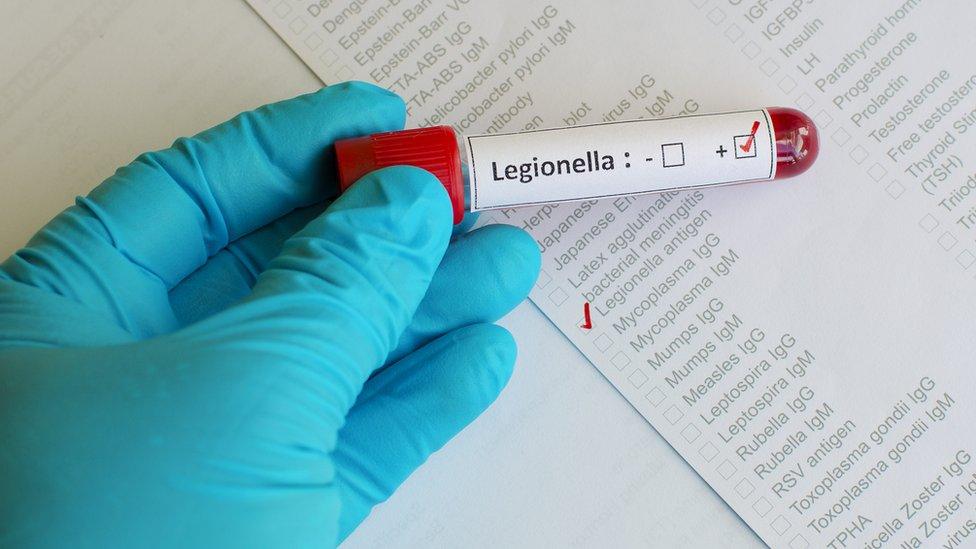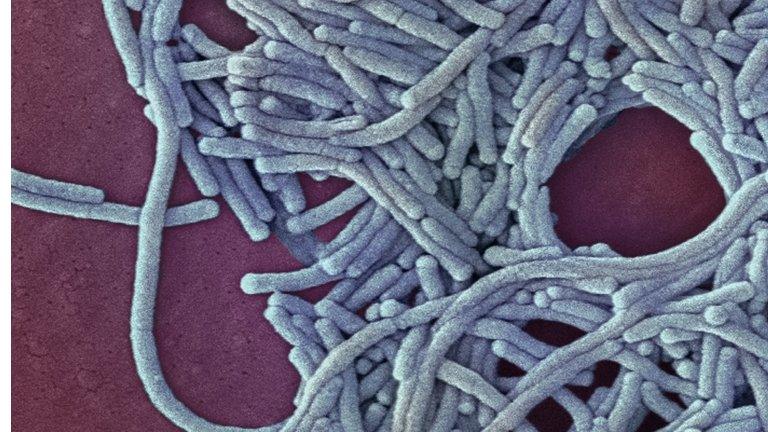Barry Legionnaires' disease cluster identified as public warned
- Published

People have been asked to flush taps, drain unused garden hoses and put commercial screen wash in cars to stop the spread of Legionnaires' disease.
The warning from Public Health Wales comes as a cluster of 11 cases has been identified in the Vale of Glamorgan in the past 12 months.
Legionnaires' disease is a lung infection, external caught by inhaling droplets of water that contain the bacteria.
Officials say there is "no evidence" the cases around Barry are linked.
"Although Legionnaires' disease is rare, it can be a potentially life-threatening illness," said Dr Gwen Lowe, of Public Health Wales.
"The disease is caught through inhaling Legionella bacteria, which are spread through the air in the form of vapours or droplets from a contaminated water source.
"Most cases of Legionnaires' disease notified to us are sporadic cases, but unexplained clustering does occur from time to time."

Legionnaires' disease
A potentially fatal lung infection, external caused by legionella bacteria
Initial symptoms include a high fever and muscle pain
It is treated by intravenous antibiotics
Legionella bacteria are commonly found in sources of water, such as rivers and lakes, which sometimes find their way into artificial water supply systems
NHS advice is that large buildings such as hotels, hospitals and office blocks are more vulnerable to legionella contamination because they have larger, more complex water supply systems and the bacteria can quickly spread
Legionnaires' disease is three times more common in men than women and mostly affects people aged over 50
An estimated 10% of people who contract the disease will die from complications arising from infection
Source: NHS

There are on average around 30 cases of Legionnaires' disease in Wales each year.
Health chiefs are "closely monitoring" the current situation in a bid to ensure the cluster does not become an outbreak.
"Legionnaires' disease cannot be passed from person to person," added Dr Lowe.
- Published22 August 2019

- Published24 April 2015

- Published14 September 2012

- Published14 September 2012

- Published2 August 2011
- Published18 September 2010
- Published15 September 2010